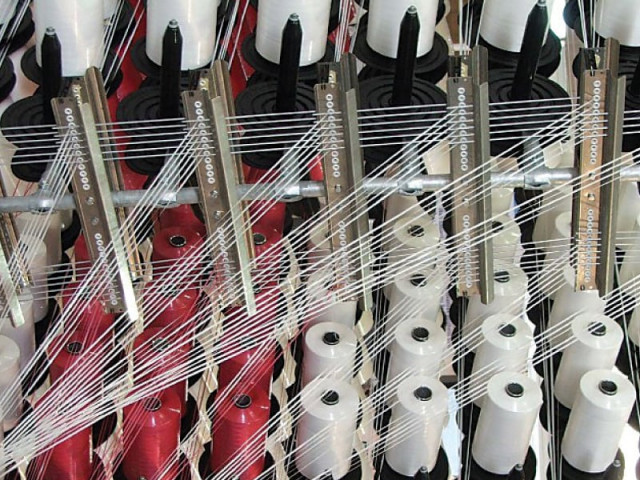Textile industry: PTEA blames govt for falling exports
Outlines pending decisions that have made matters worse

Outlines pending decisions that have made matters worse. PHOTO: FILE
In its recent meeting with Minister for Commerce Khurram Dastgir, the association, led by Federation of Pakistan Chambers of Commerce and Industry (FPCCI) President Rauf Alam, urged the government to take up issues with all other arms of the government to enable the sector to revive exports.
“There are scores of pending decisions,” said the association. “These could turn around exports and could enable the sector to reach close to the target of $35 billion set for 2018 under the Strategic Trade Policy Framework 2015-18.”
DLTL on incremental exports
The exports said the DLTL incentive for FY2014-15 has been pending for the last two years, whereas the notification for DLTL refund for FY2015-16 still needs to be issued. They also demanded for the Pakistan Customs Tariff Chapter - not included in the Ministry of Textiles earlier notification for FY2013-14 and 2014-15 for filled bedding - to be included for FY2015-16.
Technology Up gradation Fund (TUF)
The TUF scheme was notified by the Ministry of Textile Industry via two notifications in April 2010 and May 2012, respectively. Surveys of Industrial taking have been completed in phase-1 but exporters said the refund has been pending for the last four years.
Markup rate support
According to textile exporters, a huge amount of Mark Up Support Scheme claims are pending with the State Bank of Pakistan (SBP). “The overall allocation for the sector for the current year is Rs6 billion, which is not sufficient to liquidate refund claims pertaining to above heads,” they said.
Moreover, they noted that the Gas Infrastructure Development Cess (GIDC) amounts before the implementation of the GIDC Act 2015 were being recovered from the industrial consumers, which is totally unjustified. “Most of the industry; particularly from Punjab is paying the GIDC after the GIDC Act 2015; however, wrong arrears are being shown to the textile industry.
“We have had various meetings with the SNGPL and Ministry of Petroleum and Natural Resources Finance Division but the matter is still pending.”
Unaccounted for Gas (UFG) charges
They further said that 10.5% UFG charged on supply of LNG to the textile industry was totally unworkable. “The Ministry of Petroleum and Natural Resources agreed with the industry that a detailed survey from SMS to TBS would be conducted but again this issue has been pending for the last one year.
Issues related to FBR
They sought 3% customs duty with 2% import incidentals waiver to be announced for 2 years on raw material of cotton. “The sector has a shortage of 4 million bales; particularly in Punjab and this will enable our spinning industry to compete with the international market.
“Likewise, although zero rating on major raw materials is allowed, the textile exporters are deprived of input tax adjustment on packaging material which is totally unjustified.”
They further stated that sales tax input tax refunds up to January 2016 have been disbursed but refunds of exporters are still pending for many years including Provincial Sales Tax paid on Services since 2013, Income Tax Duty Drawback and Old Sales Tax deferred refunds and refunds against Section 66.
Additionally, they said the refund processing of regular claims were frozen since August 8, 2016 and RPOs for the month of July and August 2016 were pending. They suggested for the restoration of refund process, enabling exporters to get their due refunds.
They also sought issuance of zero-rating on energy fuels like; coal, diesel and furnace oil.
Issues related to the Ministry of Commerce
They suggested for the 6% increase in Drawback of Local Taxes and Levy (DLTL) for the entire value chain to offset the impact of strong Pak Rupee vs US Dollar and to also mitigate impact of direct and indirect taxation and cross subsidies on energy.
They also sought a 3% special incentive to enhance textile exports into non-traditional markets like; South Africa, Australia, New Zealand, Korea, Japan, Taiwan, Mexico, Chile, Peru, Argentina, Cuba and Canada.
Published in The Express Tribune, October 16th, 2016.
Like Business on Facebook, follow @TribuneBiz on Twitter to stay informed and join in the conversation.



















COMMENTS
Comments are moderated and generally will be posted if they are on-topic and not abusive.
For more information, please see our Comments FAQ